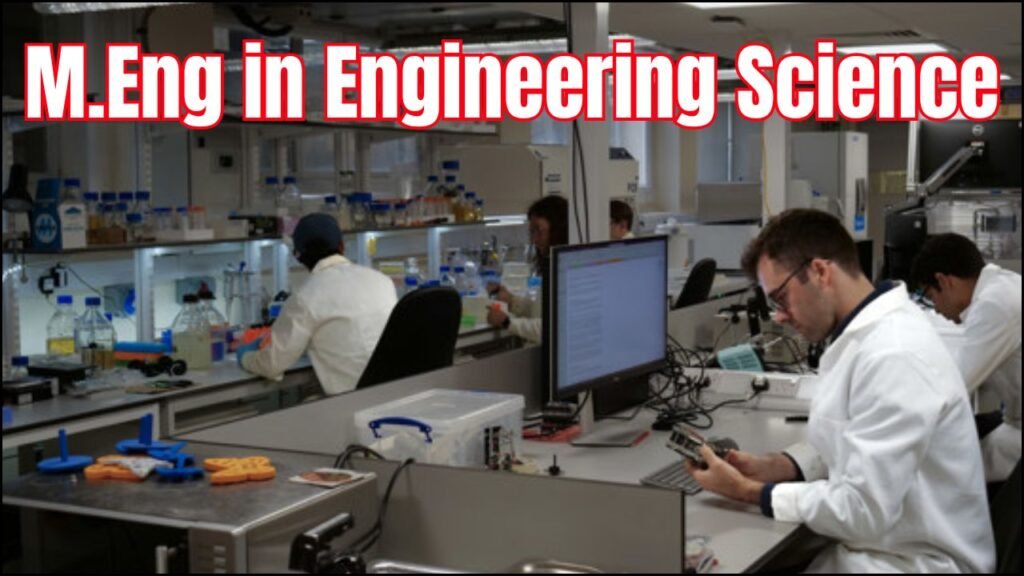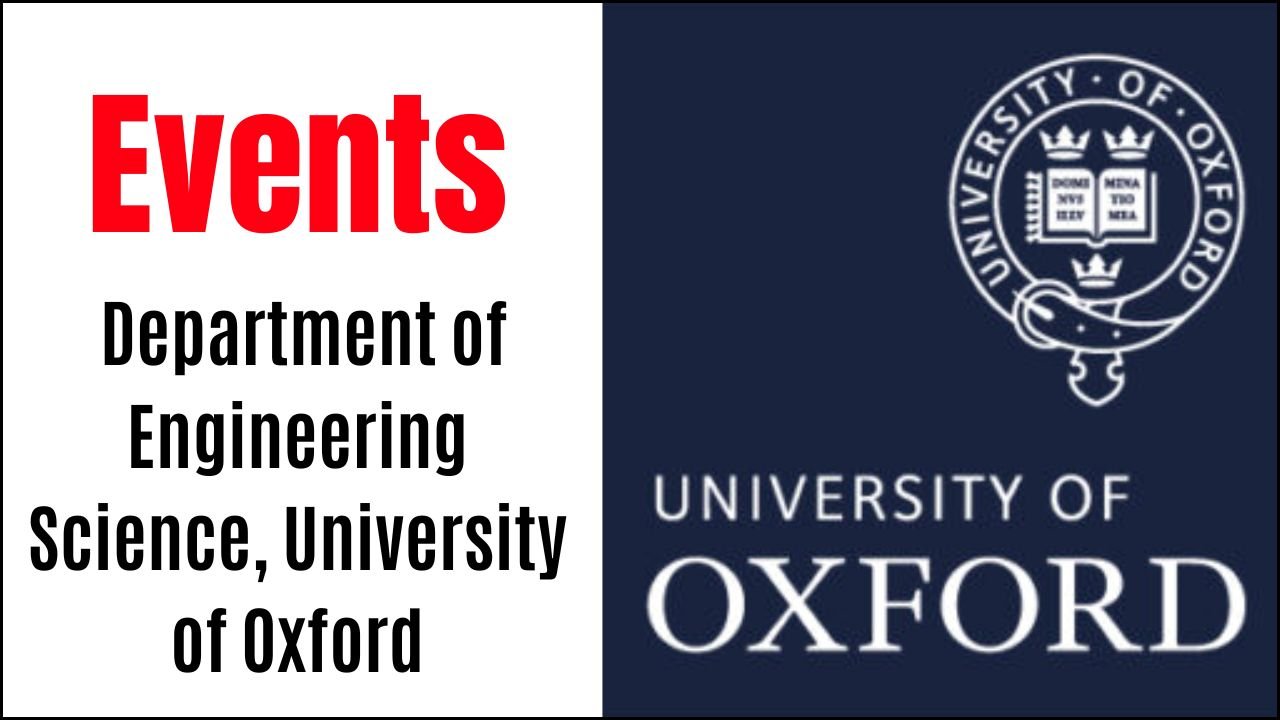
The MEng in Engineering Science at the University of Oxford offers a unique and broad foundation in all major branches of engineering. The Department of Engineering Science at Oxford functions as a single unified department. This structure helps in building a strong academic community and provides access to multiple disciplines under one umbrella. The course combines deep theoretical understanding with hands-on research and industry relevance. Oxford’s approach includes connections with computing, materials science, and medicine, giving students wide exposure and interdisciplinary learning.
Table of Contents
Course Structure and Specialisations
The programme starts with a solid foundation and gradually progresses into specialised areas. The first two years focus on core engineering topics. In the third and fourth years, students can choose one of eight specialisations.
Core Study (First Two Years)
Students begin by learning fundamental concepts in:
- Mathematics
- Mechanics
- Structures and Materials
- Energy Systems
- Electrical and Information Engineering
- Computing
Specialisation Options (From Third Year Onwards)
Students can focus on one of the following areas:
| Branch | Description |
|---|---|
| Biomedical Engineering | Application of engineering to medicine and biology |
| Chemical and Process Engineering | Focus on chemical processes and systems |
| Civil and Offshore Engineering | Design and analysis of infrastructure and offshore structures |
| Control Engineering | Systems control and automation techniques |
| Electrical and Opto-electronic Engineering | Power systems, circuits, and light-based technologies |
| Information Engineering | Signal processing, AI, and data systems |
| Solid Materials and Mechanics | Structural integrity and mechanical behaviour of solids |
| Thermofluids and Turbomachinery | Fluid dynamics and energy conversion systems |
Weekly Learning Activities
A typical week in the first two years includes:
- Around 10 lectures
- 2 tutorials or classes
- Up to 5 hours of laboratory/practical work
- Self-directed study with tutorial problems
Tutorial Format
- Each tutorial is based on a sheet of around 10 problems
- Students usually spend 10 hours preparing per tutorial
- Tutorial sessions are typically one-on-one or in small groups
Fourth-Year Research Project
In the final year, students engage in a self-directed research project, occupying nearly half of their weekly time. This project encourages innovation, deeper learning, and independent thinking.
Accreditation
The MEng in Engineering Science is professionally accredited, ensuring that the course meets industry standards and supports a path toward becoming a Chartered Engineer.
| Accrediting Body | Field | Accreditation Period |
|---|---|---|
| IChemE | Chemical Engineering | Up to 2027 |
| IET | Electrical Engineering | Up to 2027 |
| IMechE | Mechanical Engineering | Up to 2027 |
| InstMC | Control Systems | Up to 2027 |
| JBM (Joint Board of Moderators) | Civil Engineering | Up to 2025 (review pending for 2026–27) |
Focus on Sustainability
The programme includes a strong emphasis on environmental, social, and economic sustainability, which is integrated throughout the curriculum.
Facilities and Resources
- State-of-the-art laboratories
- Specialist workshops
- Computing facilities
- Access to cross-disciplinary collaborations with medicine, physics, and computer science departments
Support and Guidance
- Regular academic advising
- Access to the Oxford University Careers Service
- Support for extracurricular and summer internship opportunities
Career Prospects
Oxford engineering graduates are highly sought after across various sectors.
| Sector | Job Roles/Opportunities |
|---|---|
| Engineering and Manufacturing | Mechanical Engineer, Systems Engineer, Civil Engineer |
| Banking and Finance | Quantitative Analyst, Risk Manager |
| Computing and Technology | Software Developer, Data Analyst |
| Energy and Environment | Environmental Consultant, Energy Systems Designer |
| Healthcare and Pharmaceuticals | Biomedical Engineer, Process Developer |
| Academia and Research | PhD, Research Assistant, Teaching Fellow |
Further Education
- Many graduates pursue doctoral degrees (PhD/DPhil) at Oxford or other top institutions.
- Some take up professional certifications and chartered engineer pathways.
Graduate Employment Data
| Category | Oxford Graduates (2020–21) | Russell Group Average |
|---|---|---|
| Undergraduate in High-skilled Roles or Study | 93% | 88% |
| Postgraduate in High-skilled Roles or Study | 95% | 90% |
| Median Starting Salary (UG/PG) | £32,000 / £35,000 | – |
Key Career Services
- Career counselling and one-on-one sessions
- Industry fairs and employer presentations
- Skill development workshops
- Alumni network connections
Application Requirements
| Criteria | Details |
|---|---|
| Academic Background | Strong performance in mathematics and science |
| Admission Test | Engineering Admissions Assessment (ENGAA) or equivalent |
| Interview | Conducted by Oxford colleges |
| English Proficiency | Required for international students |
| Personal Statement | Must reflect interest in engineering and problem-solving |
Why Choose Oxford for MEng?
- Unified Department: Students get exposure to multiple fields before specialising.
- High-Quality Teaching: Academics are involved in cutting-edge research.
- Strong Industry Links: From large companies to innovative start-ups.
- Global Recognition: The Degree is respected worldwide.
- Flexible Learning: Combination of theory, practice, and research.
Student Life
- Access to clubs, societies, and sports
- Cultural and academic events at Oxford colleges
- Opportunities to join engineering competitions and global challenges
Wrapping Up
The MEng in Engineering Science at Oxford is a comprehensive and flexible course designed for students who wish to build a strong foundation in core engineering while exploring specialised branches. With a focus on research, sustainability, and practical application, this programme not only prepares students for top engineering roles but also gives them the tools to solve global challenges. Oxford’s supportive environment, combined with academic excellence and strong career outcomes, makes this degree a smart choice for future engineers.





